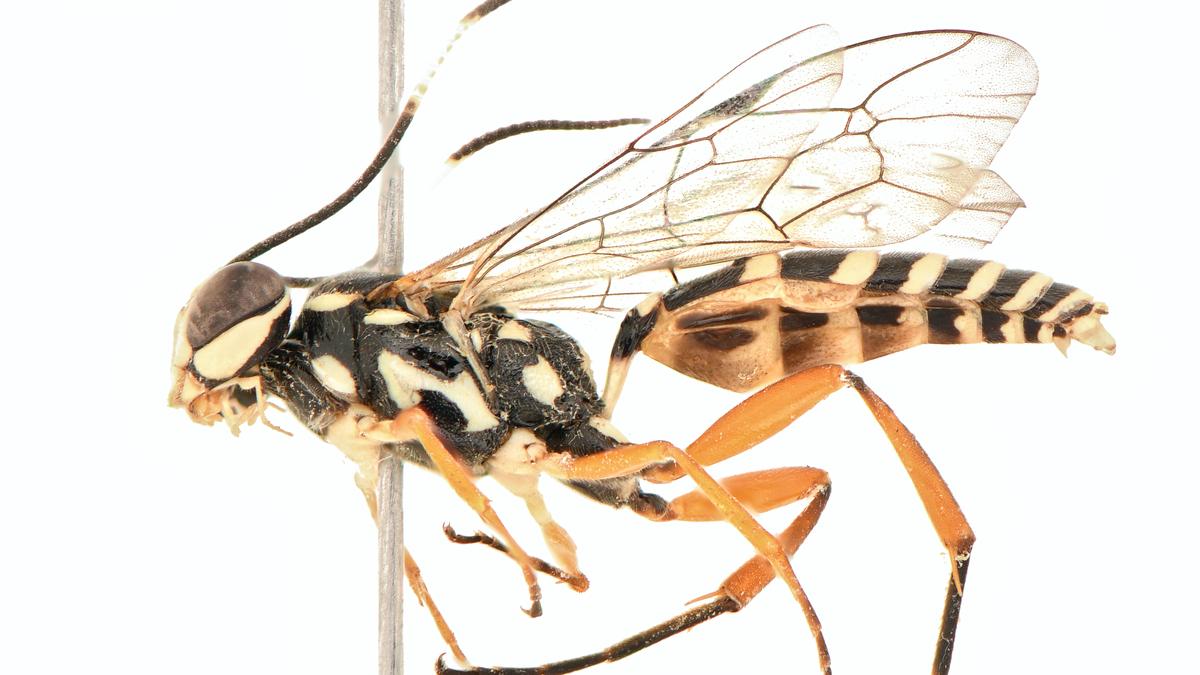Context:
Scientists have rediscovered the Losgna genus in India after nearly six decades and described a New Species of Parasitic Wasp, Losgna occidentalis, collected from an urban dry scrub forest in Chandigarh. This discovery highlights the unexplored richness of India's biodiversity and underscores the importance of taxonomy and conservation efforts.
About wasp:
A wasp is any insect of the narrow-waisted suborder Apocrita of the order Hymenoptera which is neither a bee nor an ant; this excludes the broad-waisted sawflies, which look somewhat like wasps, but are in a separate suborder.
Significance of the Discovery:
The rediscovery of the Losgna genus in India is significant for several reasons:
· New Species: The discovery of Losgna occidentalis represents a new species of parasitic wasp, highlighting the vast unexplored biodiversity in India.
· Westernmost Record: Losgna occidentalis is the westernmost known occurrence of the genus, with prior records coming exclusively from tropical forests of eastern India and adjacent regions of Southeast Asia.
· Importance of Taxonomy: The discovery emphasizes the importance of solid taxonomic work and international collaboration in documenting and conserving India's biodiversity.
Conservation Implications:
The discovery of Losgna occidentalis has important implications for conservation efforts:
· Habitat Conservation: The discovery highlights the need to conserve and protect urban dry scrub forests and other habitats that support unique and endemic species.
· Biodiversity Conservation: The finding emphasizes the importance of documenting and conserving India's biodiversity, particularly in the face of habitat loss and climate change.
· Citizen Science: The discovery showcases the potential for citizens to contribute to scientific research and conservation efforts by exploring local habitats and collecting specimens responsibly.
About Losgna Occidentalis:
Losgna occidentalis belongs to the Ichneumonidae family, known for laying eggs on or inside other arthropods. Wasps in this group serve as pollinators and biological control agents, contributing to ecological balance. The genus Losgna had not been recorded in India since 1965, making this discovery significant.
Conclusion:
The rediscovery of the Losgna genus in India and the description of Losgna occidentalis is a significant breakthrough that highlights the importance of taxonomy, conservation, and international collaboration. This discovery serves as a reminder of the vast unexplored biodiversity in India and the need to protect and conserve our natural heritage.







